This article contains an image of an indigenous person who has died.
By Andrew Humphries
Whenever Jill Tabart enters the Church of All Nations in Carlton, she sees a regular reminder of her role in one of the most significant events in the Uniting Church in Australia’s history.
On July 10, 1994, as the Uniting Church’s first female President, Jill joined Uniting Aboriginal and Islander Christian Congress chairperson Pastor Bill Hollingsworth to sign the document that joined the Assembly of the Uniting Church in Australia and the Congress in a covenant.
Next month will mark the 30th anniversary of that historic day in Sydney and, while it’s an anniversary worth acknowledging, it’s also one that comes loaded with a sense of regret.
Talk to Uniting Church figures like Jill, current President Rev Sharon Hollis, and UAICC leaders Rev Mark Kickett, Alison Overeem and Rev Will Pickett, and they will speak of a sadness that the Covenanting Statement hasn’t been able to achieve more for First Nations People.
A copy of the statement sits near the entrance to the Church of All Nations, where Jill worships, as a constant reminder of that momentous day 30 years ago.
“From time to time at CAN we refer to it and encourage people to take note of what it is saying, and to be challenged by it,” she says.
When Jill recalls July 10, 1994, it is the lead-up to the signing of the statement, and everything that went on behind the scenes, that she remembers most.
“There was a huge amount of work involved leading up to it, a lot of preparation, and lots of drafts and redrafts of the statement taking place,” she recalls.
“There was much consultation because it was recognised that it was such a significant step that we were taking.
“We were all determined that the statement be comprehensive, but also be right and acceptable and properly express what needed to be expressed.
“We were always going to express lament and regret, but what strikes me most about it now, 30 years later, was the strong commitment it showed, and there were three elements to that.
“We wanted the Church (both First and Second Peoples members) to work together towards awareness-raising truth-telling resulting in national and state policy changes, to increase understanding between First and Second Peoples in every locality, and to build relationships which respected the right of First Nations People towards self-determination in the Church and wider society.”
Yet it’s at this point in our conversation that Jill pauses and then says with a deep sense of regret, “but we’ve failed haven’t we?”
“Little things have happened along the way, of course, but I would be ashamed if I thought we could do a tick, tick, tick on it because, overall, I think we’ve barely scratched the surface on the commitment we made that day,” she says.
“There is a deep sense of lament around that and, while I can’t speak for the Church now, I sense that we have lost the urgency around this that we felt in 1994.”
The 30th anniversary next month will occur at the end of current President Rev Sharon Hollis’s term, before she steps down to assume the role of Associate General Secretary within the Synod of Victoria and Tasmania in August.
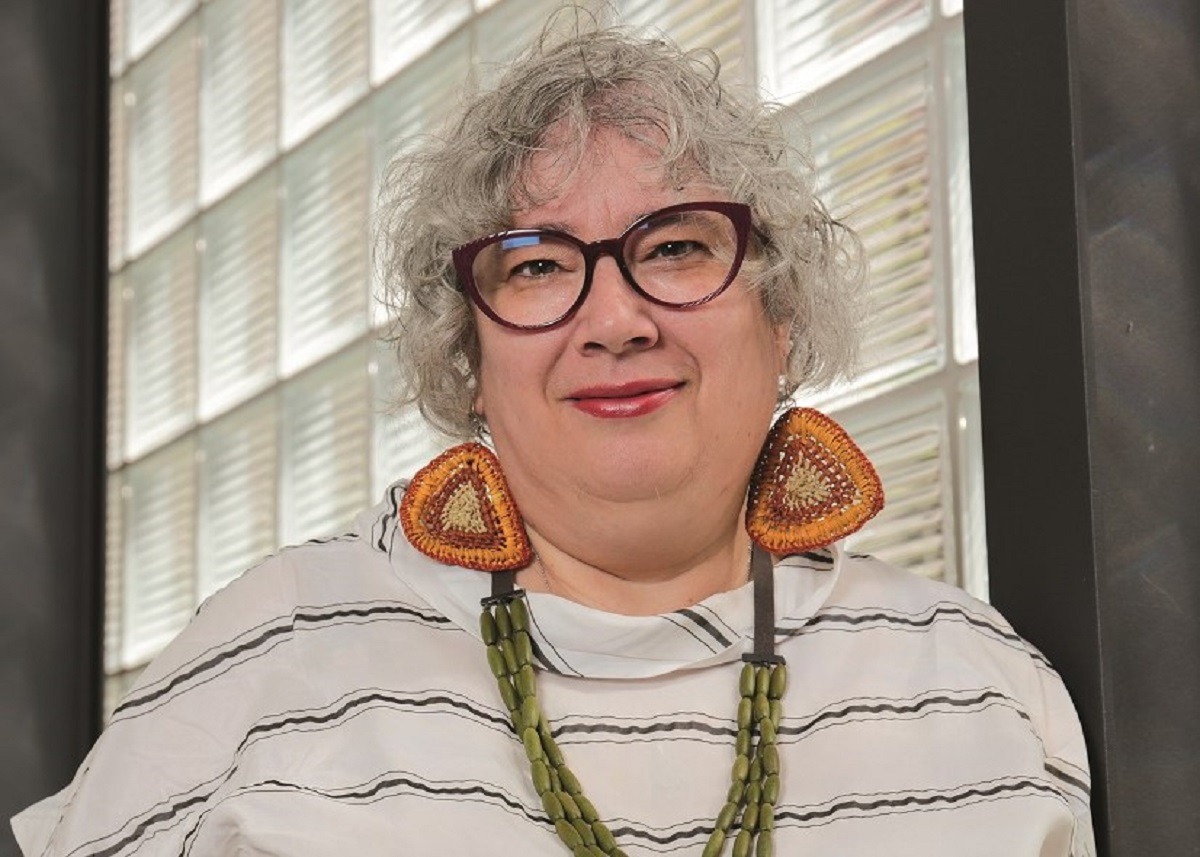
UCA President Rev Sharon Hollis laments the lack of progress since the Covenanting Statement was formalised in 1994.
Like Jill, Sharon will mark the momentous commitment made by the Uniting Church on that day in 1994, but is also saddened that it hasn’t gone on to achieve as much as it could have.
But that regret also extends to the nation as a whole, she says, less than a year after the invitation to recognise First Peoples through a Voice in our Constitution was roundly rejected.
“It’s a significant milestone that for 30 years as a Church we’ve been trying to be in a relationship with Congress that attempts to be a truth-telling relationship, an honest relationship, and a relationship that addresses both the past and the present impacts of colonisation in ways that might help to enable us to be a more whole Church, a more truthful Church, and a Church capable of walking together on the basis of that,” Sharon says.
“But for me there is a deep sense of lament at the lack of progress made, both within our Church and our nation.
“At the reconvened Assembly in May 2022 we renewed the covenant and it was a stark reminder that much of what we were lamenting 30 years ago we’ve really not moved the dial on.”
Uniting Church indigenous leaders Mark, Alison and Will know exactly how little the dial has moved in the right direction when it comes to the plight of our First Peoples.
All of them can speak to a lived experience of what it’s like to be an indigenous person in modern-day Australia, and the hurt and heartache that come with that.
They will pause on July 10 and give thanks for the commitment made by the Uniting Church 30 years ago, in the knowledge, though, that so much more must be done.
As a proud Noongar man from Western Australia, and UAICC National Chairperson, Mark acknowledges the good intentions behind the Covenanting Statement, but admits any celebration to mark the 30th anniversary will be muted at best.
“It’s a significant milestone, and the UAICC does acknowledge that,” he says.
“It brings a sense of joy around the theme of the whole Church standing together in unison and that the UAICC is not a blight or a curse on the landscape of the Uniting Church.
“But the UAICC must be the gem that sits in the centre of the Uniting Church’s crown, and we have to find ways and means to ensure that happens.
“We need that continual groundswell of support that rallies people together to say that for us to be the Church that we want to be, let’s celebrate the First Nations People who are a part of it and take us into a new relationship journey.”
Tasmania’s UAICC Leprena manager Alison’s 30th anniversary acknowledgement will be tempered by a sense of great disappointment that the Covenanting Statement has not lived up to what was hoped 30 years ago, and is not more widely embraced by Uniting Church members.
“It’s possible to go to one congregation which is living out the Covenant at a local level, but then go to another congregation which doesn’t even recognise it,” she says.
“It seems to me that the Covenant is something well supported at an Assembly level, and Synod management level, but the question is, ‘how does it filter down to congregational and church council life?’.
“Step one for people within the Church is to be aware that there is a Covenant, step two is to ensure that people appreciate what that Covenant means, and step three is to ensure they are immersed within its life.
“If we’re a Church that is committed to covenanting, how do we resource the work needed to make it happen and how do we build the capability, capacity and longevity of the UAICC in that mix.
“So, yes, it’s worth celebrating the anniversary of the Covenant, but what does it mean moving forward?
“The 30th anniversary offers us an opportunity to ask ourselves, ‘how well are we doing with the intent of this amazing decision 30 years ago?’.”
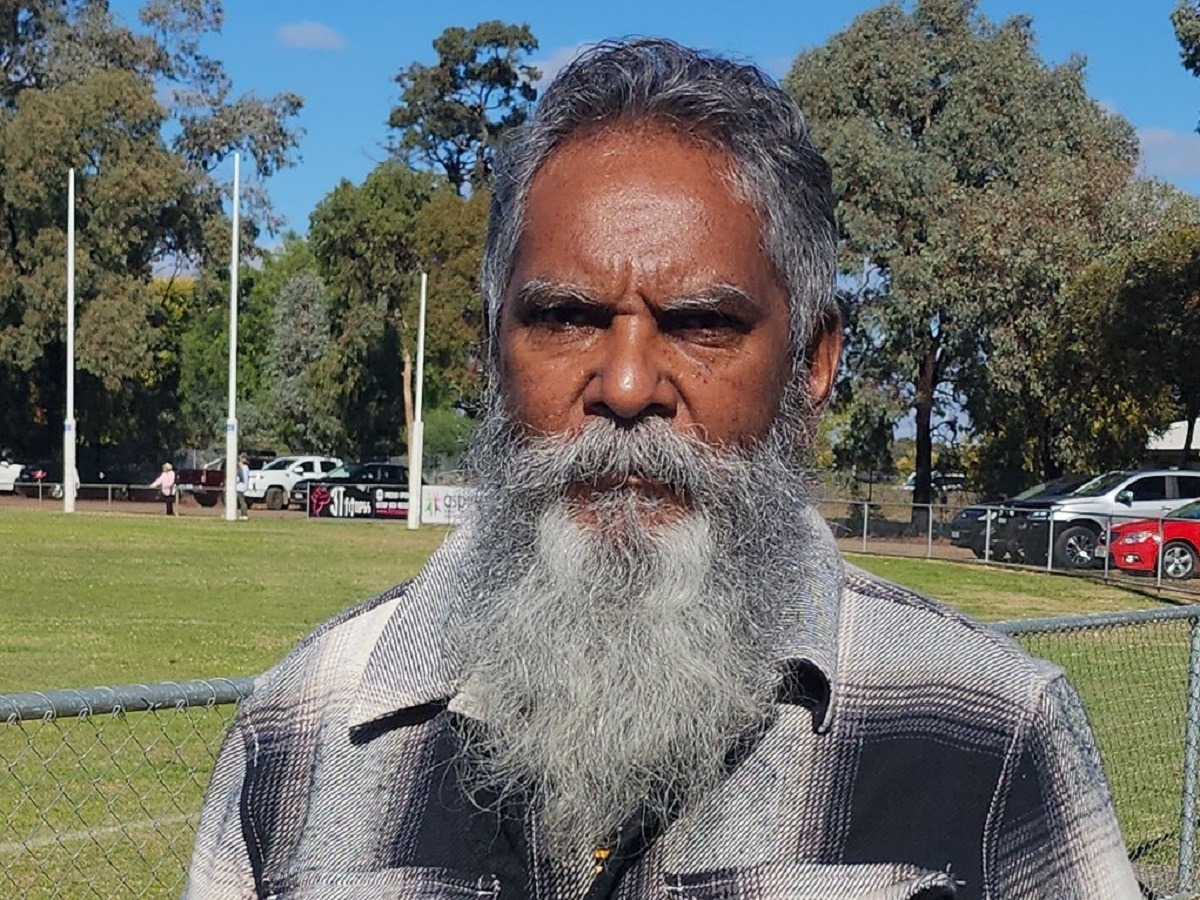
“I think we need to educate members, at a Presbytery and congregational level, about the Covenanting Statement and retell the story around it and what it can achieve,” says Rev Will Pickett.
Bendigo’s Weeroona Uniting Church minister Will Pickett has had a strong involvement with the UAICC in Victoria since moving from Western Australia around 2005.
It was the work of the UAICC, and the Uniting Church’s commitment to covenanting and social justice, that put Will on the path to becoming a Uniting Church Minister of the Word in Western Australia.
He recalls a strong belief even then that the Uniting Church was committed to Australia’s First Peoples, and the possibilities that would come from walking together with them.
But he too believes there is much more work needed as next month’s anniversary approaches.
Much of that work has to be done around educating Uniting Church members on what the Covenanting Statement means to First Nations People and how it’s an invitation for indigenous and non-indigenous Australians to walk together.
“The Uniting Church began a journey 30 years ago based on recognising and listening to First Nations People,” Will says.
“In that sense we’re on a good path, but there is much more needed.
“I think we need to educate members, at a Presbytery and congregational level, about the Covenanting Statement and retell the story around it and what it can achieve.
“There is a sense of sadness that more hasn’t been done, while I remain hopeful the statement can be more widely embraced.
“It’s going to be a better journey if more people come along with us on it.
“My wish is that First and Second Peoples can join together on this covenanting journey, and engage together on a level that represents more than just tokenism.”
Mark says any discussion around the Covenanting Statement must take into account the deep injustices suffered by First Nations Peoples since colonisation.
Central to that injustice, he says, was the theft of their land.
“It’s important to look at it in terms of how the Covenanting Statement has made our lives better, and how it changed our lives in terms of our relationship with Christ, but also the relationship with our First Peoples,” Mark says.
“Central to that is the sense of injustice around the Church’s wealth being built on stolen land.
“It’s (about acknowledging) the violence and the bloodshed and disconnect, and everything that has come after that.”
On that theme, it is Pastor Bill Hollingsworth’s response that day in 1994 that Jill often reflects on.
“The most powerful words that day came in Uncle Bill’s response,” she says.
“He wasn’t saying, ‘yes, we forgive you and thank you for saying all of those things’, he was actually challenging us.
“In fact, at the time he said that it would be very hard to forgive what had been done to First Nations People.
“The statement, then, was not an achievement in itself – it could only signal our commitment to engage in ongoing changes towards making amends. And the challenge continues.”
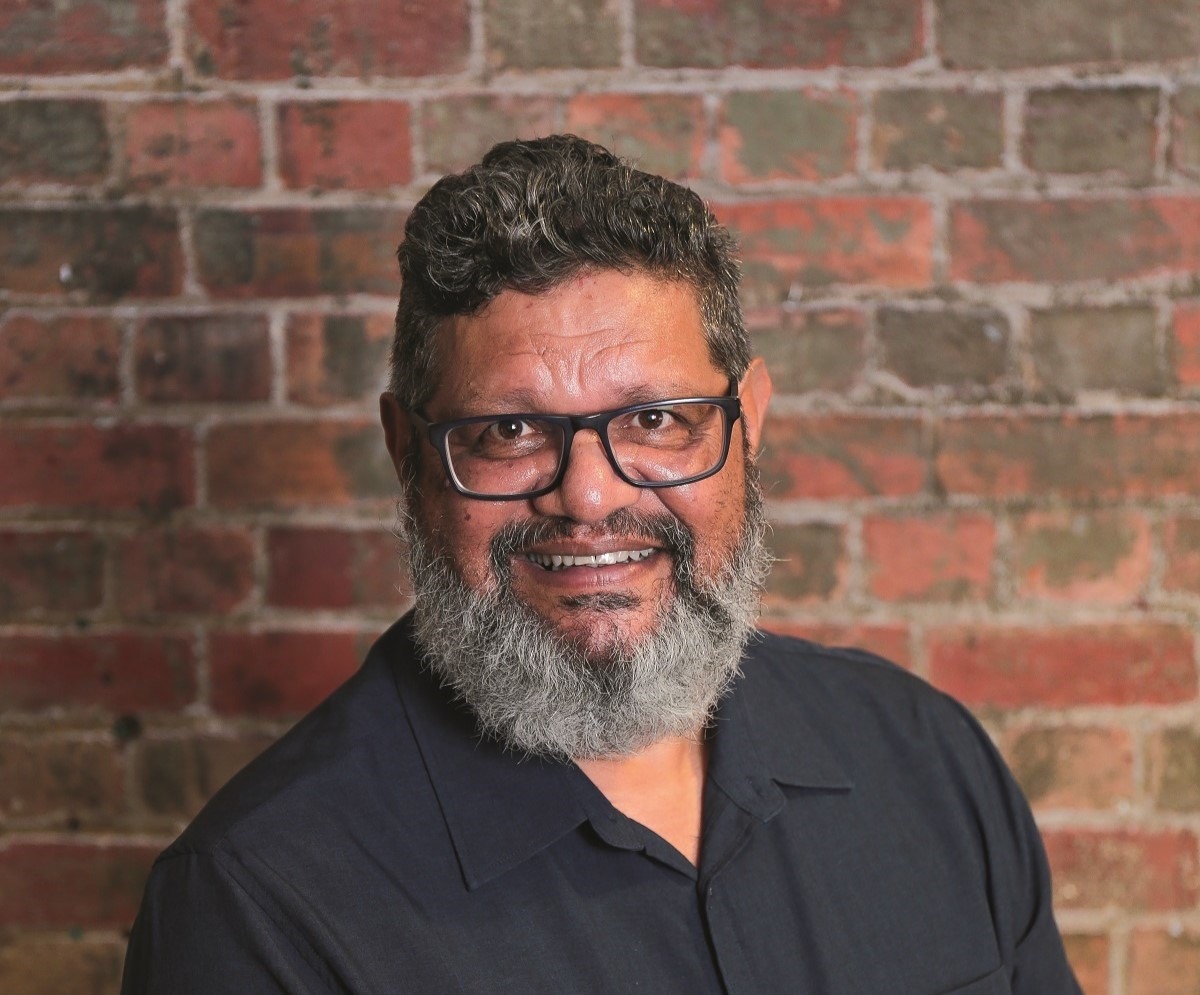
Remuneration and ‘paying the rent’ must be part of the conversation moving forward, says UAICC Chairperson Rev Mark Kickett.
While there has been progress around the edges, Sharon says it’s issues like Aboriginal deaths in custody, youth incarceration, the gap in life expectancy and lack of economic opportunities for First Nations People that have not been addressed.
Addressing them must come in the form of truth-telling, she says.
“There is still this wound at the heart of who we are as a nation that has not healed.
“I hope the Covenant is an enduring reminder that we can engage in honest truth-telling and that there is freedom and liberation in that.
“For me personally it brings a moment of deep pause and a sense of gratitude for the Covenant, and the people who did the work on it, but also deep lament that we are still not living the Covenant as a Church.
“If we want to move forward as a nation we have to address this issue, and I have always seen it as part of my duty as President to remind the Church about the Covenant in a way that continues inviting us to live into it.”
How the Uniting Church embodies the Covenant in its own life brings to the table a number of important questions which must be considered, says Sharon.
“When we talk about mission, what does it mean for the mission of this congregation, community, Presbytery, Synod and Assembly that we have a Covenant? How do we support the ongoing life of Congress to be self-determining and sustainable?” she asks.
“What does it mean when we make decisions about things like property, and ministry placements?
“How do we constantly ask ourselves ‘are we living up to the Covenant that we’ve made?’.
“The Covenant is about a relationship between First and Second Peoples, so how can congregations develop relationships with indigenous people in their area and get to know their stories of country?
“It’s about congregations having conversations about paying the rent, and having more than just a plaque around the stories of the people whose land it still is.
“For me, that’s how we move forward, in finding those opportunities in our own context. The Assembly is encouraging the Church through its ‘Living the Covenant Locally’ movement to grow those relationships and understanding.
“It would be wonderful to see more engagement with this resource in honour of the anniversary.
“Given the Church’s commitment to self-determination and sovereignty, we have to take our lead from the UAICC and what they seek, whether it’s truth telling or treaty, and what sort of political process they would like us to engage with them on.”
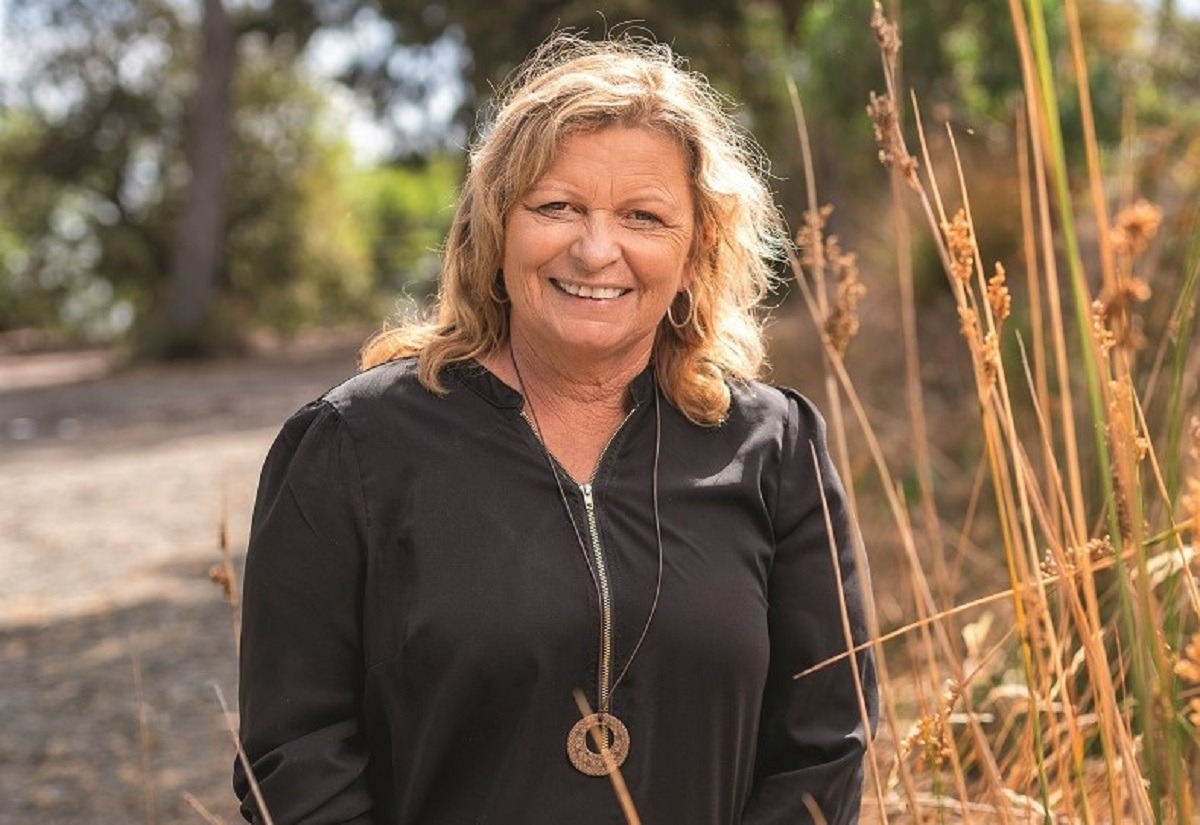
“I believe we have enough good champions out there to be celebrating a 60th (Covenanting Statement) anniversary in 30 years’ time,” says UAICC Leprena’s Alison Overeem.
The concept of “paying the rent” is one Mark says must be addressed if the Covenanting Statement is to have any meaning at all.
“We’re talking about remuneration and paying the rent, and setting things right in terms of the atrocities committed and the hurt and pain, and a whole renewal moving forward,” he says.
Alison says the truth around the land being stolen from First Peoples must be at the forefront of any conversation.
“What must sit at the heart of the Uniting Church is this covenanting relationship with First Peoples that recognises we’re on stolen land,” she says.
“It’s not enough anymore just to recognise that fact with plaques, and maybe I’m actually encouraged by that because I think there are enough people within the Uniting Church with a fire in their belly around this.”
Like any document, the Covenanting Statement needs to be regularly examined, says Mark.
“The big issue is that we need to revisit the Covenanting Statement, and the Preamble to the Constitution, to see if it’s still relevant to all of us,” he says.
“If it’s no longer relevant we then need to ask the question, ‘how do we make it relevant?’, so that people who walk into the Uniting Church can have an understanding of why we do things like a welcome to country and an acknowledgement of First Peoples.
“We need to transform the statement into something that captures the imagination of everybody, like it did when it was written 30 years ago.”
As the Uniting Church prepares to mark next month’s anniversary, Alison offers some words of hope as she pictures a time when the Covenanting Statement has been more widely embraced within the Church.
“When I first started with the Uniting Church, my answer would have been ‘no, it’s all too hard’,” she says.
“But now I see so many pockets of good, I really do.
“I believe we have enough good champions out there to be celebrating a 60th anniversary in 30 years’ time.
“We’ve got some work to do as the Uniting Church, but what we need to hold on to is the hope that sits in the great stories that are already there.”
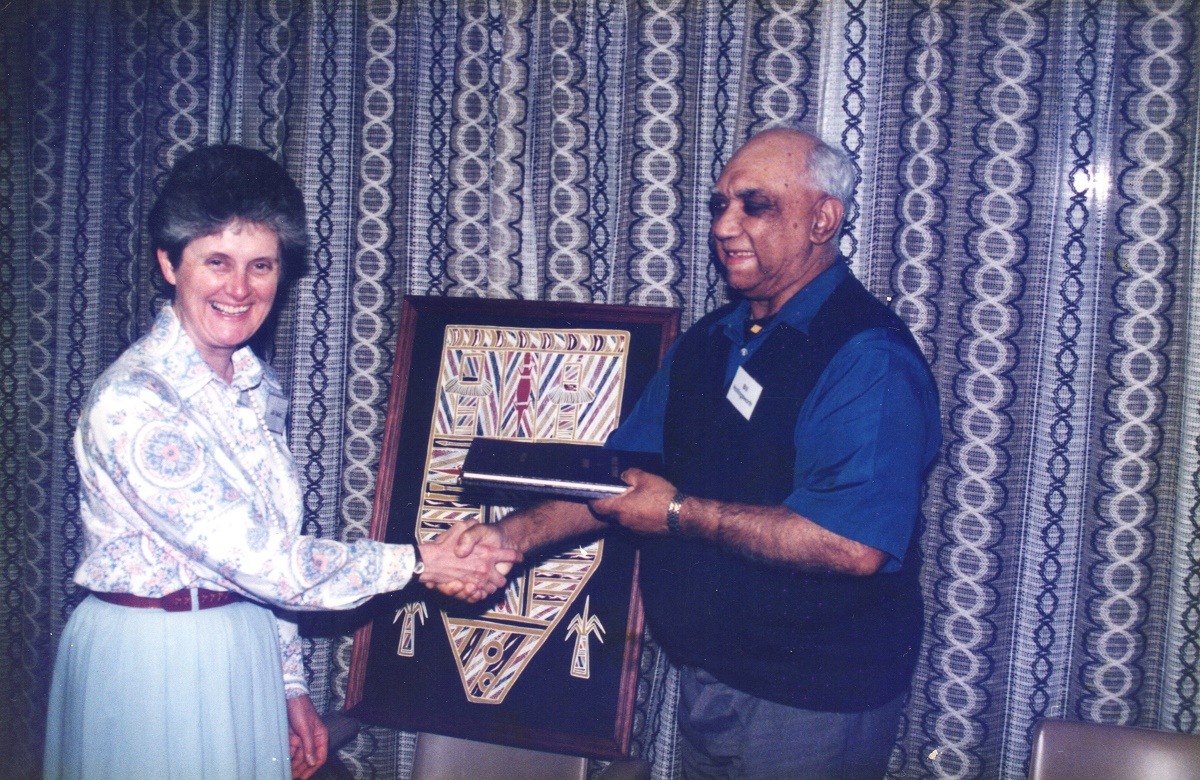
Jill Tabart and Pastor Bill Hollingsworth at the Covenanting Statement ceremony in 1994.
Words from the heart
Excerpts from the Covenanting Statement delivered by Uniting Church President Dr Jill Tabart on July 10, 1994
Long before my people came to this land your people were here. You were nurtured by your traditions, by the land, and by the Mystery that surrounds us all and binds all creation together.
My people did not hear you when you shared your understanding and your Dreaming. In our zeal to share with you the Good News of Jesus Christ, we were closed to your spirituality and your wisdom.
In recent years we non-Aboriginal members of the Uniting Church in Australia have had the privilege of journeying with the Uniting Aboriginal and Islander Christian Congress and with other Aboriginal people. We have become more aware of the sad impact that in earlier times the church and our culture had on your people.
We lament that our people took your land from you as if it were land belonging to nobody, and often responded with great violence to the resistance of your people; our people took from you your means of livelihood, and desecrated many sacred places.
Our justice system discriminated against you, and the high incarceration rate of your people and the number of Black deaths in custody show that the denial of justice continues today.
Your people were prevented from caring for this land as you believe God required of you, and our failure to care for the land appropriately has brought many problems for all of us.
We regret that our churches cooperated with governments in implementing racist and paternalistic policies.
By providing foster homes for Aboriginal children, our churches in reality lent their support to the government practice of taking children from their mothers and families, causing great suffering and loss of cultural identity.
Our churches cooperated with governments in moving people away from their land and resettling them in other places without their agreement.
I apologise on behalf of the Assembly for all those wrongs done knowingly or unknowingly to your people by the Church and seek your forgiveness. I ask you to help us discover ways to make amends.
Excerpts from the response to the Covenanting Statement from Uniting Aboriginal and Islander Christian Congress (UAICC) Chairperson, Pastor Bill Hollingsworth
For many thousands of years Aboriginal people moved in harmony with creation and subdued it as necessary by hunting, fishing and gathering, thus respecting God’s command and allowing the earth to sustain us. Our laws were developed by our relationship with the land and our intricate system of inter-tribal government. Trade was established which has never been acknowledged or understood appropriately by European researchers.
In 1788 this relation with creation was violently disrupted by the invasion of the European, which robbed us of our stewardship of the land which God gave to us.
Your ancestors came to us in different ways and we saw little of our caring God in them. They did not come to us as God’s will would dictate, but to dispossess us, take our children, rape our women, kill our men and boys and destroy our culture, reject our values and beliefs and ultimately claim our lands as their own.
As a direct result of this violent dispossession, Aboriginal and Torres Strait Islander people have lived as strangers and outcasts in their own land.
We agree with you that the church, which had a responsibility to be the conscience of the invaders, in many instances relinquished this responsibility and joined with the invaders in a great many atrocities by smoothing the pillow for what was believed to be a dying race.
Along with the past governments of Australia, the church is held accountable in our society for the injustices/atrocities inflicted on our people.
As a result of the violent dispossession and resulting isolation from economic empowerment in Australia, within a great number of our people there has developed a deep anger and resentment of European people.
Therefore it would be wrong to just say “I forgive”, without reaching a commitment to work together to lay a new foundation upon which we may build a more just future together by ensuring that the Uniting Church plays an active role in providing adequate resources to address the present disadvantages caused by the past injustices and dispossession by the invasion of this country.
We come to this covenanting table with our gifts of Aboriginal spirituality, our culture, our Aboriginal way of loving and caring, our instinctive concern and a willingness to share and teach our history and every good aspect about being Aboriginal and Islander.
Our commitment to walk together with you as equals will be measured by our willingness to share with you our friendship and our love for God’s creation.
The full statements from Dr Jill Tabart and Pastor Bill Hollingsworth can be found here
Preamble to the Constitution
In 2009 the Assembly of the UCA passed a resolution to revise the Preamble to the Constitution, acknowledging: Aboriginal and Islander peoples as the First Peoples of Australia; the tragic colonial history of injustice, violence and dispossession of First Peoples and the Church’s complicity in this history; the First Peoples had already encountered the Creator God before the arrival of the colonisers; the Spirit was already in the land revealing God to the people through law, custom and ceremony.
The Preamble to the Constitution can be found here
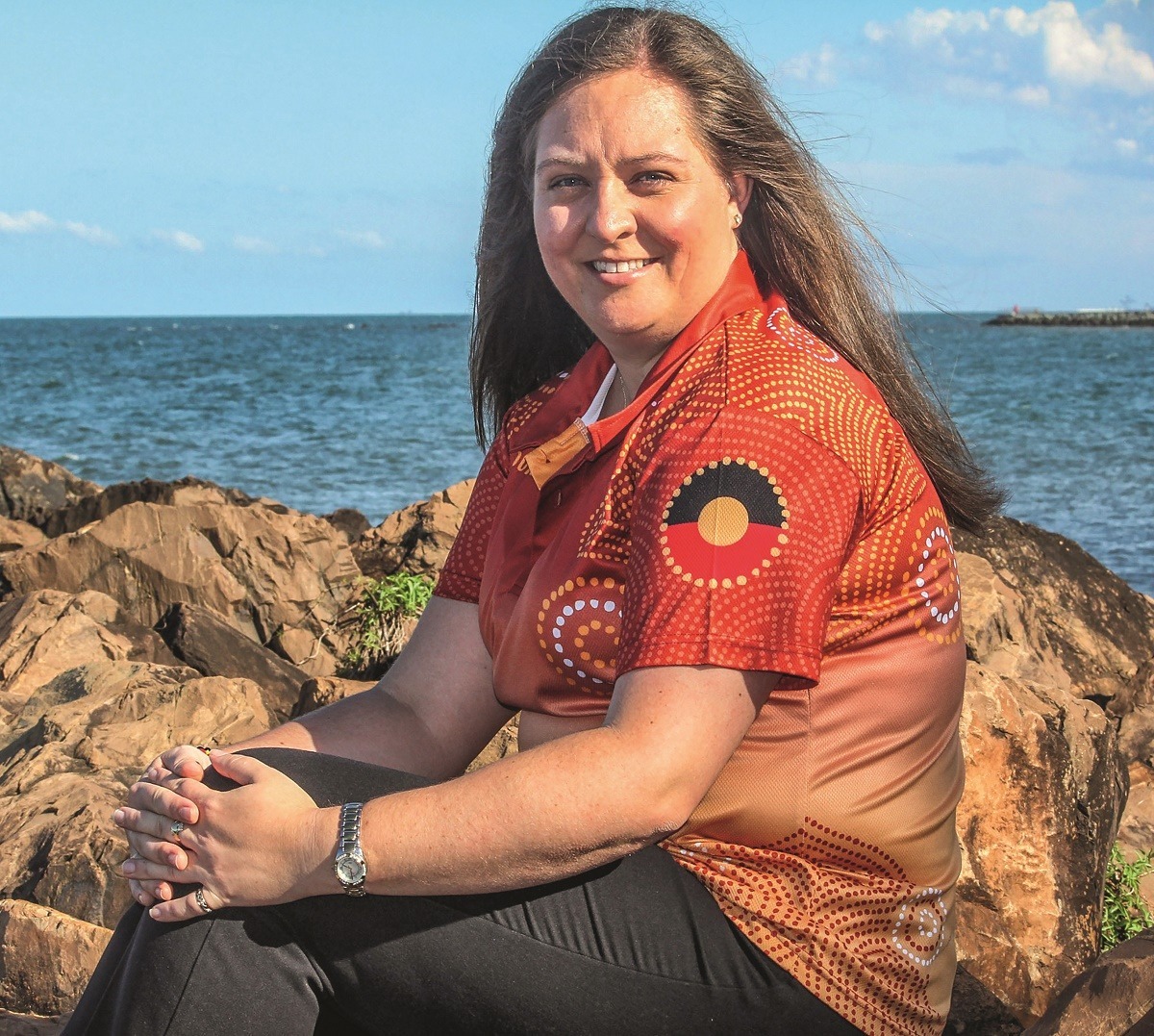
“We need people to walk alongside us (and) we need non-indigenous people to be calling (racism) out, in the church especially,” says indigenous Christian leader Brooke Prentis.
Listening and learning
By Rev Robyn Whitaker
As the sounds of a noisy pub filtered up from downstairs, Aboriginal clapsticks rang loud in the room where we gathered.
In this way our speaker, Brooke Prentis, a Wakka Wakka woman from Queensland acknowledged the Wurundjeri people of the Kulin Nation, the traditional custodians of the country on which we gathered.
The event at the Clyde Hotel in Carlton hosted by the new Wesley Centre for Theology, Ethics, and Public Policy was ’Theology on Tap’, an informal gathering of people who like to talk about theology and how it shapes our communal lives.
Brooke is a nationally recognised Aboriginal Christian leader as well as a writer, theologian, chartered accountant, company director, and poet.
“My theological journey started when I became a Christian at the age of 21 in the Salvation Army,” Brooke says.
Eventually she became a pastor, and attended the very first Grasstree Gathering, a network of Aboriginal Christian leaders from across the country convened by Auntie Jean Phillips, one of Australia’s most respected senior Aboriginal Christian leaders.
There were 50 attendees at the first Grasstree Gathering, and now the network is 200 strong.
Brooke says that first Grasstree Gathering meeting changed her life.
It also made her question some things about the church.
“I had been a Christian for 10 years (but) why had I not met any other Aboriginal Christian leaders?” she asked.
“For 10 years I had incorrectly assumed that my people were not Christian.”
This is a mistake still made today.
In schools, Brooke says, usually Christianity is extracted out of units on Aboriginal spirituality.
Yet the 2016 Census showed 54 per cent of Aboriginal and Torres Strait Islander people identify as Christian, a much higher rate than the general population.
“Christianity is actually part of our Aboriginal spirituality,” Brooke says.
Brooke unpacked the term ‘Aboriginal spirituality’, noting it can be used in problematic ways that demonstrates a lack of understanding.
“It’s our culture,” she says.
“It’s a whole system of law and living which includes the legal, political, social, physical, environmental, ecological, economic, and spiritual.
“Pre-colonisation, all these were in harmony. When you strip out Aboriginal spirituality as a separate thing, you are missing the fact that it’s one aspect of our whole system of law and living.”
Brooke also shared what it’s like to be an Aboriginal Christian leader in Australia today.
First, there is the physical and emotional toll.
“The funerals we’re doing; trying to keep kids with their families; trying to keep our mob out of jail; putting food on the table, that’s what Aboriginal Christian leaders are doing every day,” Brooke says.
Then there is the difficulty of being heard by the rest of the church at all
“Some churches say, we won’t have you come to speak as an Aboriginal Christian leader because that’s about politics and the church isn’t about politics,” she says.
“But we have seen 250 years of injustice in these lands now called Australia.
“If the church doesn’t have something to say into that there’s something wrong.
“Until we face what has happened to Aboriginal people in these lands, nothing else can flourish.”
The response, she says, does not just lie with Aboriginal people.
“We need people to walk alongside us,” Brooke says.
“Often people are still letting us be the ones who have to address the racism.
“We need non-indigenous people to be calling it out, in the church especially.
“When it comes to working with Aboriginal people, it’s secular Australia that is far more involved, far more interested and actually in relationship, than Christians in Australia.
“We have a spiritual issue to deal with (and) there is a spiritual blindness and a spiritual deafness.
“That’s why we need a Christian voice in the public space, like what the Wesley Centre will be able to bring, to speak into that spiritual issue.”
This call to speak out against racism and for justice is to the whole church.
The Wesley Centre hopes to be part of such a voice and to amplify the voices of Aboriginal Christian leaders such as Brooke.
“We need good public theology in Australia (and) I want to see the normalising of theology in the public space,” she says.
“We need Christian voices in the media who speak up for justice and display the non-discriminate love of Jesus.”
Find out more about ‘Theology on Tap’ at www.thewesleycentre.org
Find out more about Brooke Prentis’s ministry at www.brookeprentis.com
Robyn Whitaker is Director of The Wesley Centre for Theology, Ethics, and Public Policy and Associate Professor of New Testament at Pilgrim Theological College
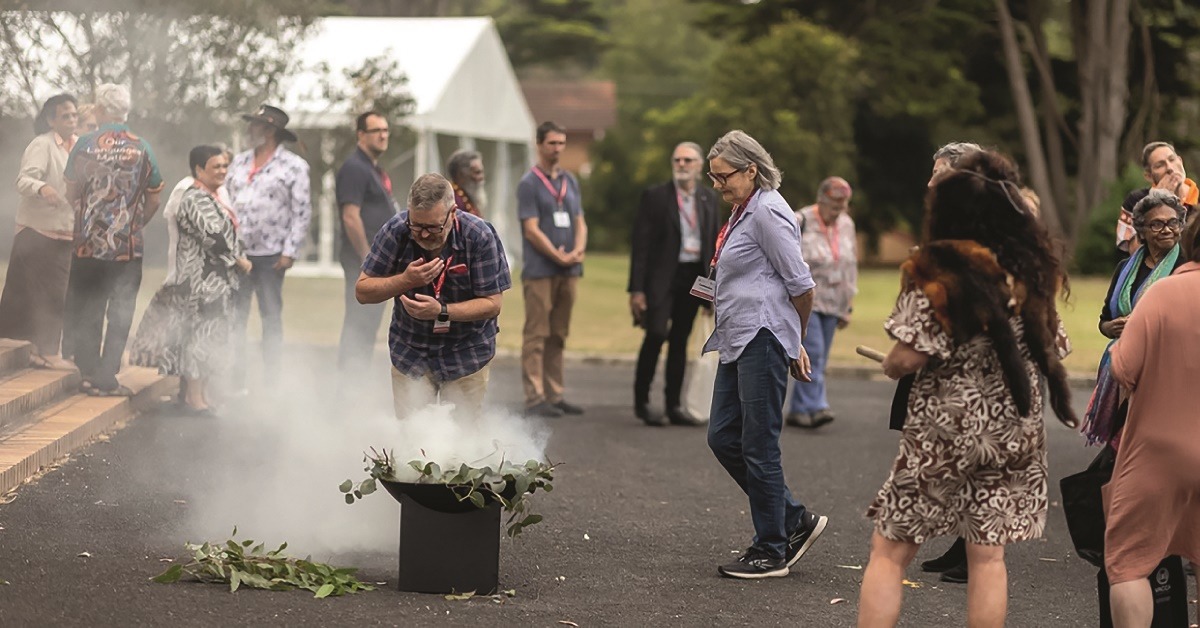
A smoking ceremony takes place at the ‘Raising Our Tribal Voice for Justice: An Indigenous Theological Revolution’ conference.
Call for justice rings loud and clear
By Professor Anne Pattel-Gray
In February this year, an historic gathering of indigenous church leaders and theologians came together in Melbourne on a national platform.
The ‘Raising Our Tribal Voice for Justice: An Indigenous Theological Revolution’ conference at the University of Divinity’s School of Indigenous Studies aimed to explore indigenous theological perspectives on spirituality, colonisation, justice, repatriation, Country, and ecology, particularly in response to the ‘Voice to Parliament’ referendum outcome.
With a focus on truth, reparations, treaty, justice, and reconciliation, the event facilitated meaningful discussions among indigenous theologians and delegates from various denominations.
The conference garnered significant attention, drawing a diverse audience and high praise for its organisation and impact.
The aim was to delve into critical issues facing indigenous communities in Australia, New Zealand, and the Pacific.
The conference aimed to amplify indigenous voices within theological discourse, foster dialogue on justice and reconciliation, and showcase the theological diversity inherent in indigenous theology.
It offered an opportunity for indigenous people to engage with theology through their cultural lens, affirming their identity and heritage.
Furthermore, the event underscored the significance of indigenous theology in addressing historical injustices, fostering reconciliation, and transforming the Australian nation.
The feedback from delegates highlighted the positive impact of the conference, with a strong commitment to continuing the conversation on indigenous theology through future symposiums.
The daily discussion groups of truth, reparations, treaty, justice and reconciliation were incorporated to foster meaningful engagement and discussion by conference participants.
Generally positive comments were received from delegates speaking to their overall experience.
The conference was a resounding success, thanks in large part to the support of sponsors.
By providing funding for this transformative event, they contributed to advancing indigenous theological discourse, promoting justice and reconciliation, and empowering indigenous communities.
The conference not only highlighted the importance of indigenous voices within theological conversations, but also paved the way for future collaborations and initiatives in this critical area.
Anne Pattel-Gray is Professor of Indigenous Studies and Head of the School of Indigenous Studies at the University of Divinity

